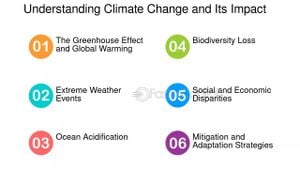Education and recruitment challenges are hitting the United Kingdom hard as both sectors face pressing issues stemming from various socioeconomic factors. With rising living costs from inflation, perceived job security issues, and changing career aspirations among the youth, the educational system faces significant hurdles.
The UK has long prided itself on its educational excellence, yet the reality is somewhat grim. A report released by the National Literacy Trust highlights this stark reality, showing only 35% of students aged between eight and eighteen enjoy reading during their free time. This is not just any drop; it sizzles with discontent as it signals the lowest levels of interest recorded since the charity began its surveys nearly two decades ago. The decline has been particularly alarming among boys, who seem less attracted to reading, which brings up the question: what’s causing this disengagement from literature?
The situation escalated recently when Canterbury Christ Church University announced it would discontinue its English literature degrees due to insufficient student interest. This decision echoes the growing sense of unease surrounding English literature as it suggests once again, there might not be enough enthusiasm among prospective students.
Rising tuition fees also contribute to the education quandary. Tuition charges are set to increase for the first time since 2016, aimed at alleviating financial strains on universities. University administrators have cited stagnant funding and pressures from inflation as reasons behind these looming fee hikes. This will burden students and may deter potential applicants from pursuing higher education, particularly as they weigh financial viability against career prospects.
Interestingly, there’s also the fallout from tight immigration rules. A significant proportion of students enrolled at various universities are international, and recent policy reforms have prompted many to reconsider their studies. With many educational institutions now questioning their viability without international students, the economic fabric of the UK’s education system may soon unravel if these rules continue to deter foreign students.
On the recruitment front, businesses across sectors are feeling the pinch too. Job vacancies have outpaced the number of skilled job seekers available to fill those positions. Many industries are currently scrambling to find the staff they need to run operations smoothly, fuelled by the pandemic's residual effects and changing employee expectations. Workers are increasingly prioritizing work-life balance, meaningful work, and flexible working conditions over monetary reward alone. It’s clear: the recruitment dynamics are shifting.
With morale low, recruitment challenges are forcing employers to rethink their strategies. They are compelled to reconsider their job offerings, emphasizing flexibility, competitive salaries, and employee well-being. Recruitment advertisements now often highlight the company's mission, values, and culture, aiming to build emotional connections with potential candidates.
Climbing up the ladder to higher education faces myriad challenges, especially with many academics expressing anxieties over funding cuts and their responsibilities to attract students. Universities are tightening budgets with projected cuts leading to job losses, forcing administrators to scramble for creative solutions to attract and retain both staff and students.
Graduate employability rates have become another sticking point, as employers express dissatisfaction with the level of skills among graduates. Notably, many students are leaving university ill-prepared for the workforce, sparking conversations about curriculum relevancy. There’s mounting pressure on educational institutions to align courses with real-world skills and knowledge. It’s becoming imperative for universities to partner closely with businesses to bridge this skills gap, offering internships, apprenticeships, and industry collaborations to equip graduates for success post-graduation.
The growing trend of interest rates surging higher amid rising inflation presents another bitter truth for both education and recruitment. Borrowing to fund education is becoming increasingly challenging for students and families alike, leading to doubts about the return on investment associated with getting degrees. Many are pondering the worth of higher education versus entering the workforce earlier or taking on alternative education pathways such as vocational training.
Community colleges and vocational institutions are on the rise as alternative avenues for students. These options offer practical skills and are becoming increasingly attractive to students who prefer shorter career pathways over traditional four-year degrees. Consequently, educational institutions must now position themselves innovatively to meet the rising demand for practical skills.
Another layer of complexity relates to the mental health crisis engulfing students—exacerbated during the pandemic and contributing to disturbing dropout rates. Many young individuals entering the workforce or higher education experience heightened levels of anxiety and stress, which made the decision to pursue higher education more challenging than ever. Universities are carrying the burden of ensuring sufficient mental health support for students, and those who fail to meet these needs risk losing student enrolment.
Indeed, the challenges are numerous, but students aren’t the only ones under pressure. Educators are also feeling overwhelmed with increased workloads, pressure to adapt to modern teaching techniques (think online learning challenges and curricular adaptations), and the looming possibility of job losses due to budget cuts.
Educational leaders and policymakers must tackle these issues head-on to reverse unwanted trends. Concessions are necessary to reinvigorate faith among students and workforce candidates alike, and new strategies are required to create compelling educational environments, manageable workloads for teachers, and economically sound strategies.
Only time will tell if the education and recruitment challenges the UK faces can be mitigated effectively. For now, both landscapes remain precarious. Rigorous conversations and evaluations must commence, backed by action plans to navigate these hurdles. The futures of both education and workforce depend fundamentally on the UK’s responses to these existing challenges.
Undoubtedly, there’s hope on the horizon. Increased awareness of existing challenges provides the first steps toward reform and change. It’s incumbent upon society to nurture interest, spark curiosity, and promote engagement across various sectors for meaningful progress going forward. With collaborative efforts between educators, institutions, and employers, the future could very well mold to support talent development and educational enrichment like never before.



